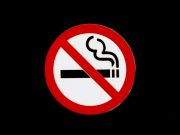In a congressional testimony, Gottlieb was asked by Rep. Robert Aderholt, R-Ala. whether he would be in favour of raising the minimum tobacco age to 21. “We would support that,” responded Gottlieb.
In recent months, the FDA has been making many alarming claims about the alleged increase in teen vaping. Last Wednesday Gottlieb referred to this as a “sheer epidemic”. “A lot of the youth access isn’t just 14-year-olds and 15-year-olds going into convenience stores and buying these products,” Gottlieb explained. “This is enterprising 18-year-olds in high school buying them legally, and creating a business in their high school selling them back to 16-year-olds and 15-year-olds.”
“If we had a 21 age limit across the board on these products it would make it harder for that kind of activity to take place,” he said. “So I think it could help me address the most immediate problem that I’m facing with respect to tobacco, which is the epidemic of youth use of these non-combustible products.”
Closing in on vaping companies
Gottlieb threatens to pull e-cigs off the market if more isn’t done to reduce “epidemic” levels of teen use.
Gottlieb expressed doubt that e-cigarette companies are really doing their best to keep their products away from teens. In fact, following the infamous deal between Altria and Juul, last month the commissioner called Altria CEO Howard Willard and Juul CEO Kevin Burns to the agency’s headquarters outside of Washington, to explain their strategy. Gottlieb was once again threatening to pull e-cigarettes off the market if more isn’t done to reduce “epidemic” levels of teen use.
“I’m concerned,” said Gottlieb. “Did something change? Do they have new data? Do they have a new understanding? Because they just made a very big commitment to support the expansion of pod-based products, which they said contributes to the youth epidemic,” he added, implying that these companies went back on their word with regards to combating teen vaping.
The dark side of banning substances
Meanwhile, some public health experts believe that Tobacco 21 policies may be counterproductive. State Government Relations Manager from the Heartland Institute Lindsey Stroud, has previously pointed out that the illegality of other substances does not stop youngsters from consuming them.
On the contrary, it just pushes them to obtain these substances illegally, at times from the black market where they are unregulated and possibly unsafe. “The National Institute on Drug Abuse reported in its Monitoring the Future Study: Trends in Prevalence of Various Drugs 58% of 12th graders reported consuming alcohol in 2015,” she said.
Stroud had added that this report showed that alcohol remains “the substance most widely used by today’s teenagers,” while 35% of the study participants also reported using marijuana. In an article on The Heartland’s Institute’s website, she had pointed out that alcohol and marijuana are both illegal for minors in every state, yet this has not stopped these youngsters from obtaining and consuming the substances. “Why would lawmakers expect different results when it comes to tobacco cigarettes?” concluded the tobacco policy expert.
Read Further: The Washington Examiner













